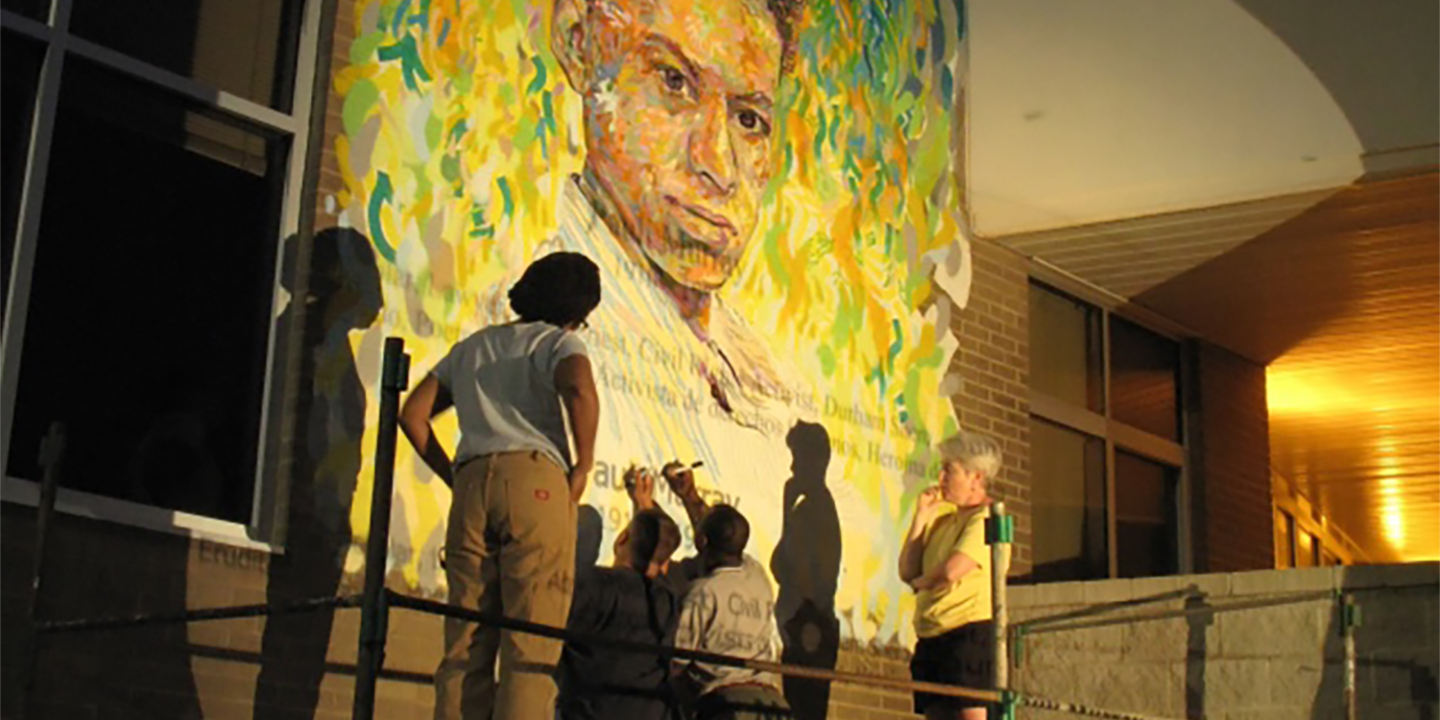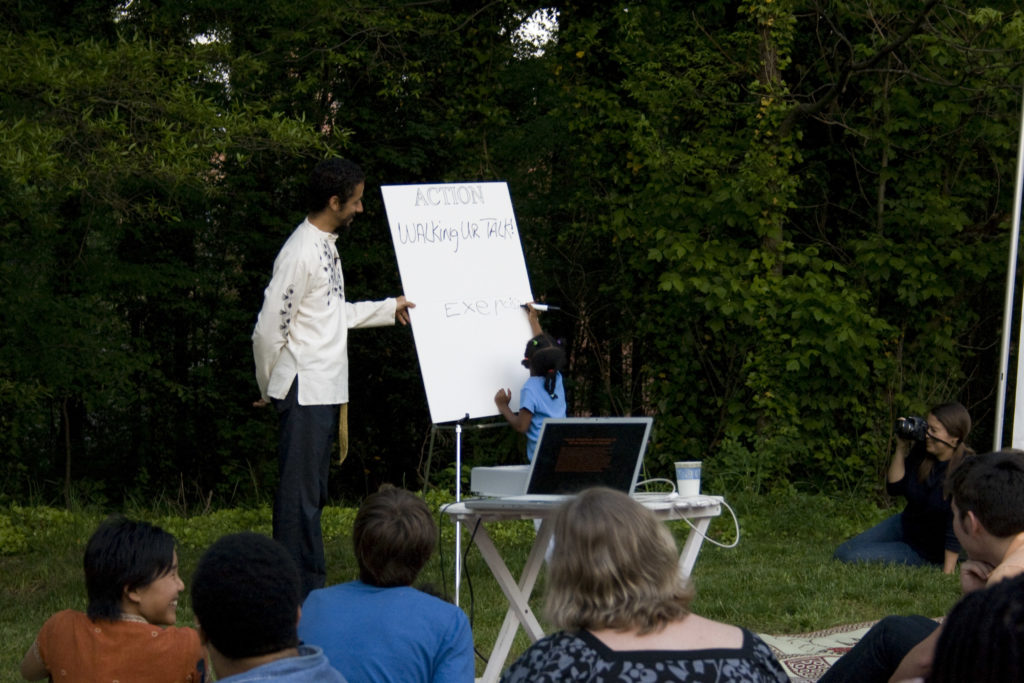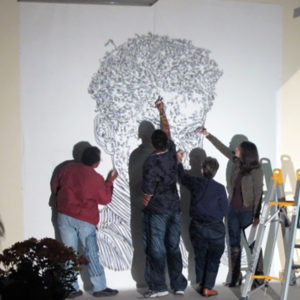
Face Up: Telling Stories of Community Life
2009 | Durham, North Carolina
PROJECT PARTNERS:
A documentary and public art project grounded in the neighborhood goals of Southwest Central Durham, North Carolina
“True community is based upon equality, mutuality, and reciprocity. It affirms the richness of individual diversity as well as the common human ties that bind us together.” – Durham (s)hero Pauli Murray
Face Up: Telling Stories of Community Life was a documentary and public art project that grew out of local conversations about neighborhood goals in Southwest Central Durham, North Carolina. The project blended the Lehman Brady Visiting Joint Chair Professorship in Documentary Studies and American Studies at Duke University and the University of North Carolina at Chapel Hill with collaborative documentary exploration and art making in community settings across Durham.
The project’s open approach to building a loving community encouraged diverse participation in the enhancement of the aesthetic environment, as large public art installations expanded awareness of historic and contemporary persons and places in Southwest Central Durham.
CONCEPT
Six neighborhoods make up Southwest Central Durham: Burch Avenue, Lyon Park, West End, Lakewood Park, Morehead Hill, and Tuscaloosa-Lakewood. Historically segregated into African American and Anglo-American neighborhoods, this area was becoming more integrated and was striving to reach out to the many newly emerging Latino enclaves within its borders. The residents and organizations that made up the Southwest Central Durham Quality of Life Project (QOL) worked to break down economic, social, and cultural boundaries by building intentional bridges of common experience and shared concern.
Since 2003, the Center for Documentary Studies (CDS) has worked with QOL to bring the arts and humanities to the task of community building through the documentary arts. This initiative merges practice and theory, expands the university classroom experience to include everyone, and promotes visual and cultural literacy among students and local residents.
The Face Up project embraced and advanced CDS’ approach through an artist residency and public art process that engaged and amplified the voices and stories of community members through the creation of monumental works of art. The project connected faculty, students, staff, and Southwest Central Durham residents through an artistic endeavor, allowing them to access the power of creativity and discover new avenues to community membership and involvement.
Pauli Murray in the World
Duke University Transit Complex, 117 S. Buchanan Boulevard
Durham, North Carolina
Through a dialogical process, residents from multiple neighborhoods, students, faculty, and staff from multiple universities, and a selection of special friends collectively developed 14 collaborative works permanently installed in 8 sites across Durham, North Carolina. This slideshow documents the creation of one of the five installations that feature the avatar Pauli Murray.
PLANNING
Preparation for the project began with an exploration of the ever-changing landscape of community. Project planning visits were inspired by a series of social collaborations at important community events—the first was the Consensus Workshop between QOL project members and Duke University representatives to develop strategies to orient students and others who are working in the neighborhoods; the second was the annual neighborhood CommUNITY festival held at the Shoppes at Lakewood; the third was a community charrette focused on the revitalization of the West Chapel Hill Street business district.
Cook also spent time with Duke faculty, students, and administrators; CDS and Community Affairs staff; members of the QOL Project Steering Committee; leaders of community-based organizations; and residents of Southwest Central Durham. Cook and participants also toured Duke’s campus, visited the Art Department and the Nasher Museum of Art, traveled the neighborhoods by car and on foot, and combed the area for potential installation sites.
PROJECT ACTIVITIES
During the Spring 2008 residency, four social collaborations took place. Combining art, food, music, and celebration, these events included a “Get Involved!” introductory meeting, a community art fiesta held at the Lakewood YMCA, a West End block party, and a participatory exhibition at CDS. These social collaborations focused on learning together and highlighting connections as individuals and loving community members.











